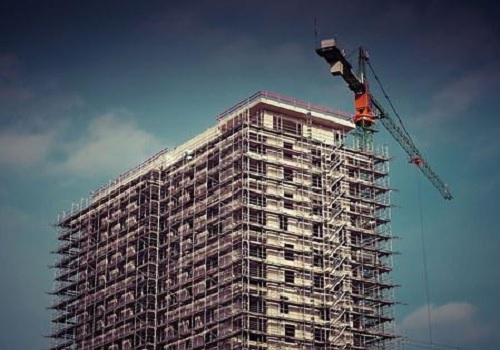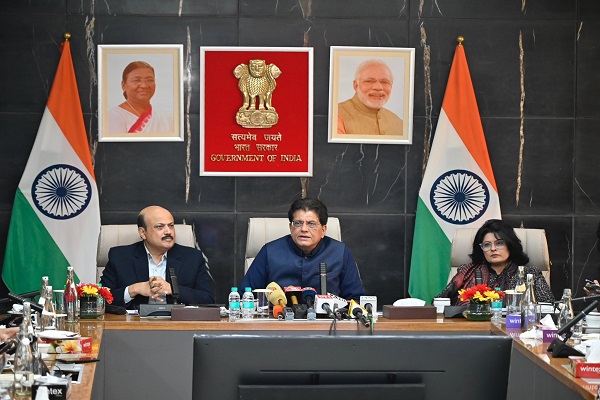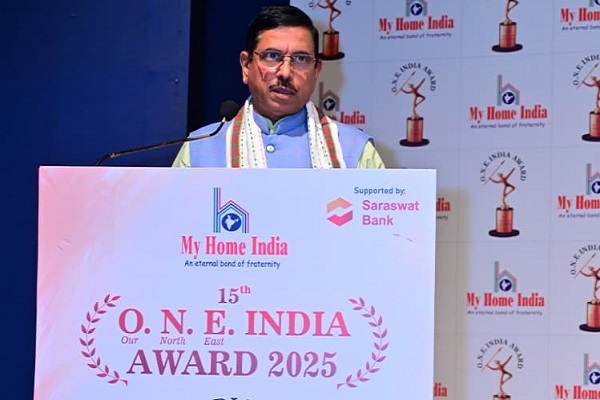Realty sector hails Union Budget, calls it vibrant & visionary

The Indian realty sector has largely given a thumbs up to the Union Budget 2024-2025 presented in the Parliament on Tuesday by Finance Minister Nirmala Sitharaman, terming it visionary and vibrant which will sustain India’s growth story over the next five years.
The President of the Confederation of Real Estate Developers Association of India, Boman Irani, said that with the PM Awas Yojana-Urban, the housing needs of one crore poor and middle-class families will be addressed with an outlay of Rs 10 lakh crore, including central assistance of Rs 2.2 lakh crore in five years.
The Chairman of the National Association of Realtors-India (NAR), Sumanth Reddy, lauded the move to slash capital gains tax from 20 to 12.5 per cent which will attract greater investment into the realty sector, but said that reducing GST on real estate brokerage services to 5 per cent remains pending.
Giving a score of 8/10 to FM Sitharaman, Niranjan Hiranandani, Chairman, National Real Estate Development Council (NAREDCO), said that a monumental allocation of Rs 10 lakh crore for PMAY-Urban for three crore houses, 12 new industrial parks, and focus on rental housing through dormitories in industrial parks would boost affordable rental homes for industrial workers, and underscore a robust vision for urban development.
Maharashtra NAREDCO President Prashant Sharma said the comprehensive approach to job creation and boosting consumption are positive signs for the realty sector, while the other initiatives will create a ripple effect enhancing the economic landscape and boosting demands for residential and commercial properties.
“Significant infrastructure investments continuing over the next five years, including a provision of Rs 11,11,111 crore for capex, will have a multiplier effect that will drive private investment in infrastructure. The introduction of a market-based financing framework and simplified rules for Foreign Direct Investments (FDIs) will further facilitate economic growth and stability,” Sharma said.
The President of CREDAI-Maharashtra Chamber of Housing Industry, Domnic Romell, said the proposal to reduce stamp duty for women house buyers is a progressive step, especially in places like Mumbai where realty prices are among the highest, besides “promoting gender equity through lower duties for women purchasers is a socially responsible move, which we have been advocating for long”.
CREDAI-MCHI Vice President Pritam Chivukula said that keeping in mind the Viksit Bharat initiative, the Budget will give a significant boost to housing both in rural and urban areas, and help the people get a roof over their heads, particularly the one crore poor and middle-class sections.
Similarly, the Rs 2.66 lakh crore for rural infra development will help the people in Mofussil India become self-reliant and uplift their living standards while discouraging the rural migration to urban centres, thus ensuring overall development, Chivukula said.
Other top realtors and industry experts like Tribhuwan Adhikari, MD & CEO, LIC Housing Finance; Amit Sinha, MD & CEO, Mahindra Lifespace Developers Ltd; Sandeep Runwal, MD, Runwal Group; Kamal Singal, MD & CEO, Arvind SmartSpaces Ltd; Dhaval Ajmera, Director, Ajmera Realty & Infra India Ltd; Atul Bohra, Group CEO, Kolte-Patil Developers Limited; Shashank Paranjape, MD, Paranjape Schemes Construction Ltd; Ramesh Nair, CEO, Mindspace Business Parks REIT; and Nagaraju Routhu, CEO, Experion Developers, also hailed various other facets of the Budget.
These include the proposed industrial corridor that will spur employment, industrial growth and economic progress, the digitalisation of urban land records with GIS mapping and an IT-based system that will enhance transparency and efficiency while reducing risks linked with unclear titles or property disputes, the capital gains tax adjustments proposals, the tax incentives under Section 80EEA, GST reliefs, etc., which herald a progressive future for the industry and the country.




















